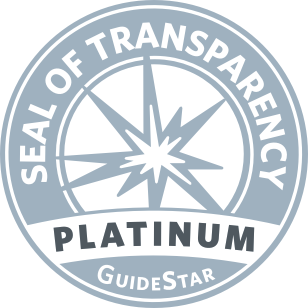
An Overview of Genetic Testing for Inherited Retinal Diseases (IRDs)
Most rare retinal diseases – including retinitis pigmentosa, Stargardt disease, Usher syndrome and choroideremia – are inherited and usually caused by one or more defects (mutations) in a single gene.
Genetic testing is available to attempt to identify the defective gene causing the IRD in an individual or family.
There are potential benefits to knowing the underlying genetic cause of a person’s IRD. It may help confirm or refine a diagnosis. Knowing the mutated gene can help a person understand how the disease may affect their vision during their lifetime. It can also guide the testing of family members to identify those at risk of inheriting the condition. Knowing the genetic defect may help people qualify for clinical trials and inform them about which future therapies may be of benefit.
At the same time, the information revealed from a genetic test may not be immediately helpful to an individual or family. In some cases, the knowledge might create anxiety for some family members.
It is very important to remember, however, that a genetic test may not reveal the defective gene, which can be frustrating for a patient and their family.
The decision to undergo genetic testing should not be made lightly. Anyone interested in a genetic test is strongly advised to talk to a genetic counselor or retinal physician who is knowledgeable about the genetic testing process and the potential impacts of the results, before they decide to undertake the test.
The Genetic Testing Process
- Get a Thorough Clinical Exam — Before blood is sent off to a laboratory for testing, a patient needs to get a thorough clinical exam conducted by a retinal specialist familiar with IRDs. Usually, a clinical exam will give a strong indication of what the disease is — e.g., Stargardt disease versus retinitis pigmentosa. This can greatly help the genetic testing lab narrow the scope of the search for the disease-causing gene mutation, saving time and money.
- Meet with a Genetic Counselor — Genetic counseling is a critical part of the genetic testing process. A genetic counselor can help you decide if genetic testing makes sense for you and your family. A genetic counselor can also help determine the best genetic test for you, based on current test methodology, number of genes to be tested, detection rate, price of the test, and potential insurance reimbursement. The counselor can also tell you the likelihood that the genetic basis of your condition will be found and how discovering, or not discovering, the genetic defect might affect you and your lifestyle. In addition, he or she will interpret the test results for you, and serve as your advocate throughout the genetic testing process.
- Submit a Blood Sample — The genetic testing lab will provide instructions for the doctor or clinical lab drawing the blood sample, including how much blood is required and where the sample should be sent. Getting blood drawn for a genetic test is not much different from getting blood drawn for other common tests.
- Receive and Interpret Results — It can take several months for initial results to come back from a genetic testing lab. Sometimes the disease-causing gene is not found. The likelihood of finding the gene depends on several factors which your genetic counselor can discuss with you. Regardless of whether your gene mutation is found, your genetic counselor will help you understand the results and recommend next steps. In some cases, re-testing may be an option, perhaps at a later date.
- Costs of Genetic Testing and Counseling — The costs associated with genetic testing and counseling can vary depending on who is providing the services and what disease is being investigated. Some insurance companies will reimburse for these expenses — others won’t. If the expense is a concern, talk with your genetic counselor before you begin the process. He or she should be able to give you an estimate of how much the counseling will cost and whether your insurance will cover it.
The Foundation’s booklet Genetic Testing For Retinal Degenerative Diseases: Information and Resources for Affected Individuals, Families and Health Care Providers offers additional information on the genetic testing process. While the booklet is not a substitute for a genetic counselor, it can help you better understand and prepare for the process. The last section of the booklet lists additional resources, which may also be helpful.
You can download the booklet by clicking on the hyperlink below or call 800-683-5555 and ask for a copy to be mailed to you.




